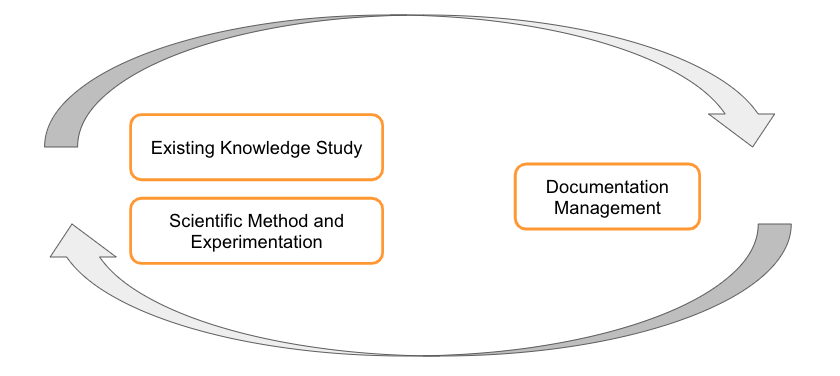My previous post about the Atom-Innovation Framework discusses at a high level the three constituent particles of that process we call innovation: research, ideation and development, plus a nucleus that holds them together which is made of passion.
In this I deep dive into the research particle.
Research seems to me a human activity that allows us as individuals and perhaps more important as collectivities to acquire knowledge and to also create knowledge. These acquisition and creation processes are different and complementary to each other. Knowledge is the actual target of both of those processes.
More importantly, knowledge empowers us to achieve things. There are different types of knowledge, for example, factual or propositional knowledge, procedural knowledge and objective relationships or acquaintance knowledge.
Being research the meta-process to acquire and create new knowledge, we can divide it in multiple sub-process areas:
- Study of existing knowledge
- Experimentation and the whole scientific method
- Management of knowledge, including knowledge lifecycle.

Those process areas rely heavily in documentation management as well as knowledge exchange dynamics, including publication, peer review, team knowledge sharing.
In our modern world, individuals and teams are required to develop formal Research Abilities that facilitate knowledge management by providing optimal ways to search, relate and maintain relevant documentation of multiple knowledge fields.
Characteristics, procedures, references are knowledge elements of fundamental importance.
As mentioned before, teams require not only ways to document and find knowledge but also ways to validate knowledge and distribute it among different team members.
The following are important characteristics of a knowledge management system:
- Easy to create and publish/validate/distribute among relevant parties
- Easy to maintain, define relationships, relevance and lifecycle, including archival and end of life
- Easy to find by relevant related queries
Being the first particle of the atom it is accurate to say all innovation begins with a knowledge foundation acquired through robust research and knowledge management processes.
Comments
Comments are closed.